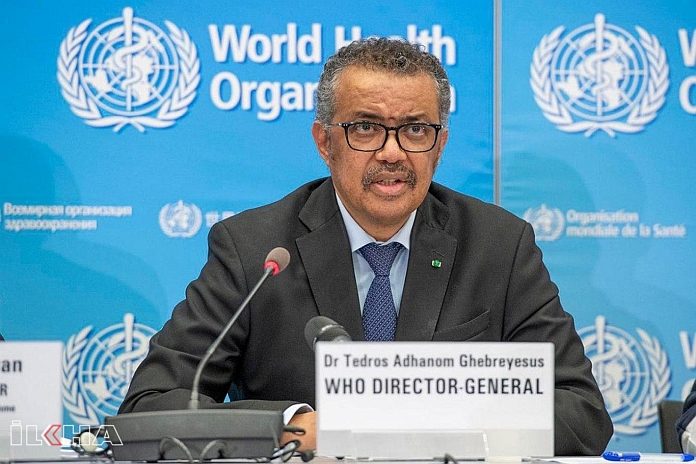Dear colleagues and friends,
Professor Houssin, members and advisors of the Emergency Committee. My best wishes to all of you for a Happy New Year. I hope that 2022 will bring us closer to ending the acute phase of the pandemic.
2021 gave us many reasons for hope, as science provided us with more tools to control the COVID-19 pandemic.
However, we have also faced many hurdles, including politicization, nationalism, short-term self-interest disinformation and more.
This toxic combination has hampered the response, fuelling the transmission and evolution of the virus, and hampering equitable access to the tools to prevent, detect and treat it.
As a result, many countries cannot meet basic baseline needs or modest targets. More than 9.4 billion vaccine doses have now been administered globally.
But 90 countries did not reach the target of vaccinating 40% of their populations by the end of last year, and 36 of those countries have not yet vaccinated 10 percent of their populations.
More than 85 percent of the population of Africa – about one billion people – is yet to receive a single dose of vaccine.
We cannot end the acute phase of the pandemic unless we work together to close these gaps.
Last week, more than 15 million new cases of COVID-19 were reported to WHO from around the world – by far the most cases reported in a single week – and we know this is an underestimate.
This huge spike in infections is being driven by the Omicron variant, which is rapidly replacing Delta in almost all countries.
WHO continues to track Omicron and other variants. We continue to assess the transmission of this virus, its severity and its impact on countermeasures, including vaccines.
In September last year, WHO established the Technical Advisory Group on COVID-19 Vaccine Composition, or TAG-CO-VAC, a group of experts to review the implications of variants of concern on vaccines.
This week, TAG-CO-VAC said that more vaccines will be needed that have a greater impact on preventing infection and transmission, as well as severe disease and death.
Until such vaccines are developed, the composition of current COVID-19 vaccines may need to be updated, to ensure they continue to provide WHO-recommended levels of protection against infection and disease.
TAG-CO-VAC also said that a vaccination strategy based on repeated booster doses of the original vaccine composition is unlikely to be sustainable.
The group also emphasised that while some countries recommend boosters, the immediate priority for the world is accelerating access to primary vaccination, particularly for groups at greater risk of developing severe disease.
But while vaccines remain very effective at preventing severe disease and death, they do not fully prevent transmission
More transmission means more hospitalizations, more deaths, more people off work, including teachers and health workers, and more disruption to essential social and health services.
More transmission also means more risk of another variant emerging that is even more transmissible and more deadly than previous variants.
The sheer scale and pace of transmission also means more pressure on already overburdened and exhausted health and care workers.
Ending the inequitable distribution of vaccines, therapeutics and diagnostics remains the key to ending the pandemic. If we end inequity, we end the acute phase of the pandemic.
My colleagues will provide technical updates on the current epidemiological situation, future scenarios, the Omicron variant, vaccination and international travel.
I would like to thank you, committee chair Professor Didier Houssin, for your skilled stewardship.
My thanks to each of the committee members and advisors for sharing your expertise, and for your dedication and commitment.
As always, the International Health Regulations will guide your deliberations.
I wish you a productive meeting. I thank you.





